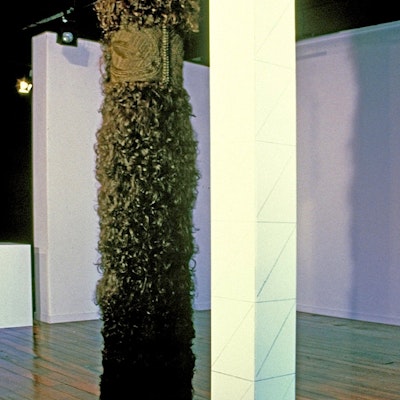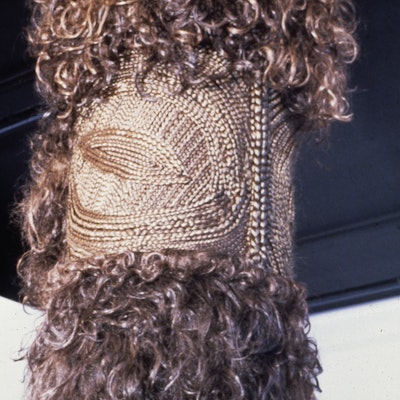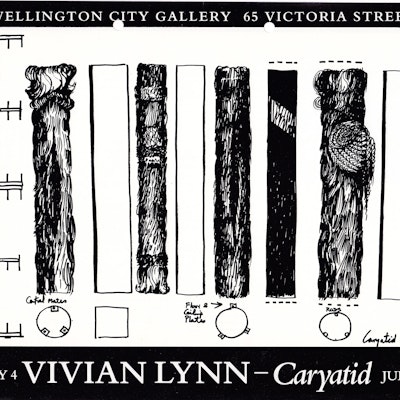Caryatid




Object Name: Installation
Title: Caryatid
Date: 1986
Description: Caryatid reconfigures a type of column which supported classical architecture. However unlike the classical column, Caryatid stands free. The work is positioned in the gallery space, in relation and adjacent to a square concrete column built near the centre of the room, supporting the gallery's architecture. On the four surfaces of this column is drawn a grid of black lines. The artist's research visit to Paestum and Pompeii included photographing the caryatids at Hadrian's Villa in Rome. She pursued her interest in the similarities and differences between the lives of women in early and contemporary cultures, as found in artifacts, symbols, and myth. For example the column or tree in matrilineal cultures marked the Asherim, the place where the Goddess was worshipped, simultaneously referencing the healing powers of Artemis caryatid. While the religious constructs were dismissed by the artist, the underlying respect for nature was noted as similar to contemporary thinking.
Size: 3300 x 410 mm
Where Made: New Zealand
Where Used: Wellington City Gallery
Condition: Good